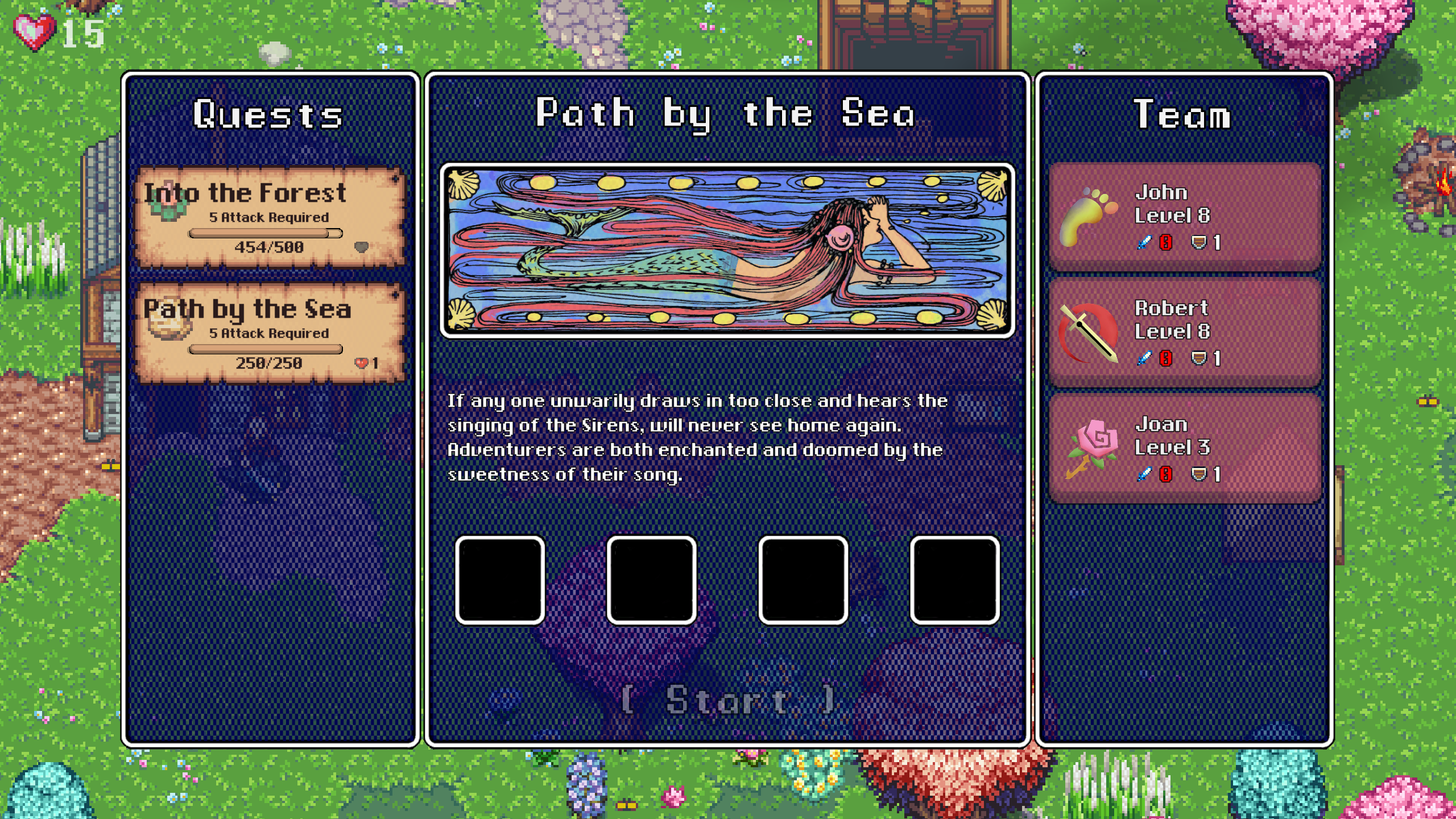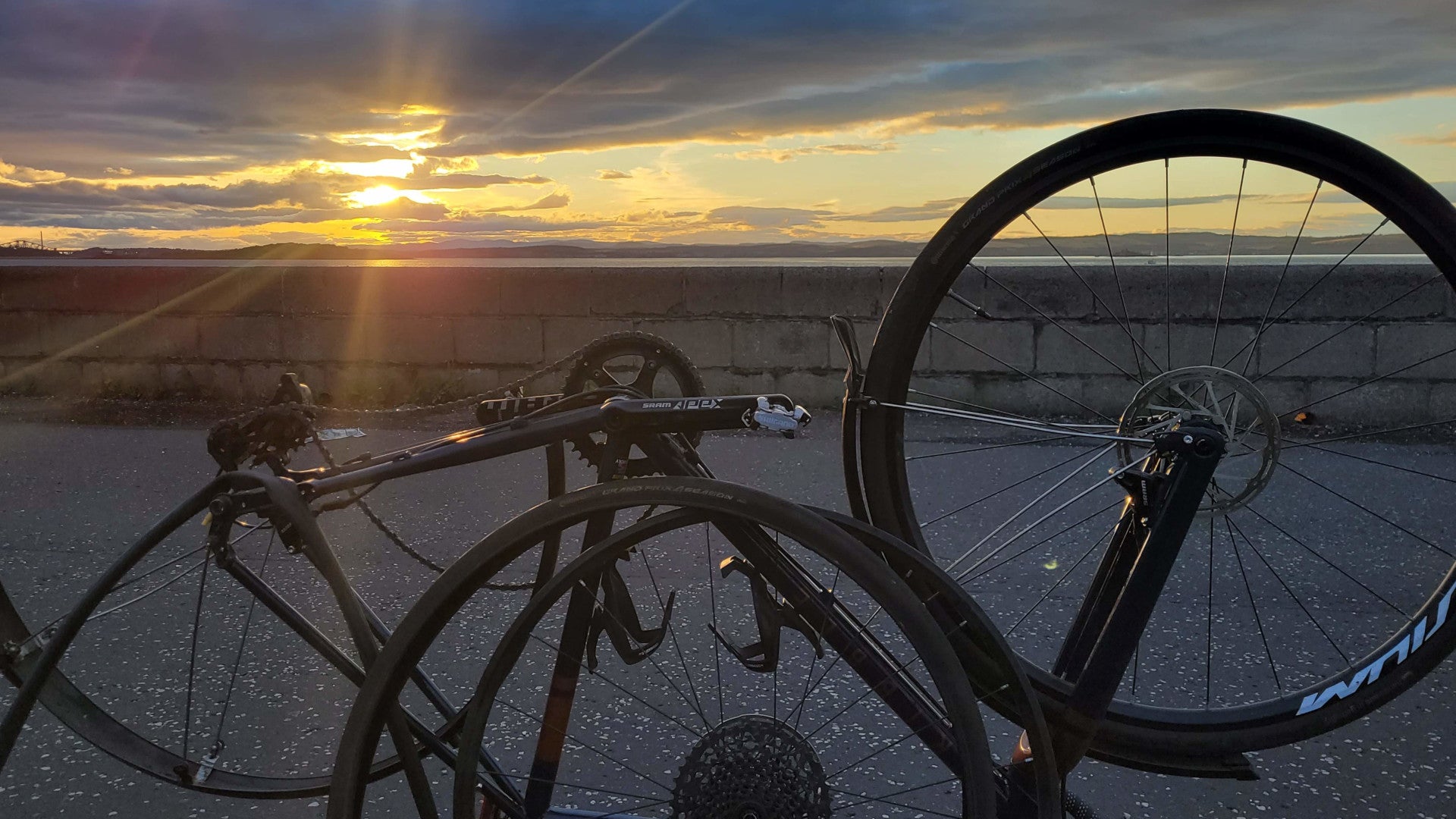Wren is a fantasy idle game where you build up a village, recruit and equip warriors, and send them out on quests to auto-battle baddies. You can earn a trickle of resources from sources like farming (clicking on crops) or fishing (clicking on fish) every 20 hours of real time, but you can get a big splash of this ‘mana’ by doing exercise out in the real world. Connecting to a Strava or Fitbit account, Wren coughs up great gobs of mana as a reward after you do a recorded exercise (not just cycling: also walking and the bad sport, running). One long bike ride will likely earn you more than a week of idling. I don’t think Wren does much with the data it draws from Strava or Fitbit. As far as I’ve seen, it doesn’t reflect cadence or wattage or personal bests or such by offering appropriate bonuses or power-ups or such. I don’t know how its calcuations work but ultimately it converts all exercise sessions to a plain ol’ lump sum of mana. A shame. It’s a slow game. It’ll take many attempts to beat one of the quests, many repeat attempts of watching battles play out without my input then paying to replace broken weapons when my party fail after only chipping a few dozen hitpoints from the boss’s hundreds. It is possible that I’ve botched the village-level strategy, though it’s hard to tell with sparse feedback and info on what stats do. It’ll take a lot of time and exercise to upgrade my village, my team, and everything. That’s on purpose. Wren is here as a tiny bonus for effort, an extra level of numbers and gamification to enjoy on top of your Strava numbers. “Wren is meant to be played in short sessions following exercise,” the game’s blurb says. “This trek is a marathon, not a sprint.” Strava itself is more gamified than Wren in ways. It doesn’t have boss battles or village-building but it does offer virtual medals for the fastest times on route sections, it bestows the title of ‘Local Legend’ for the most attempts, and it holds frequent challenges offering badges and sometimes even discounts on cycling gear. I think presenting people with data contains an implicit challenge, too. I think I find that more engaging and motivating than Wren, where I can’t imagine I’d ever set out on a ride with the specific aim of progressing the game. I am still checking into Wren after rides, mind, just to see what might happen. But I’m not really interested in competing with a game, nor with gamified systems. I ride in competition with myself, and that’s how I use Strava—which, yes, I am on. I skip Strava’s public leaderboards, events, and friend lists. I have a private profile simply to see my own numbers go up (or down) over time. I do feel happy with this broad sense of progress: how I’m getting faster overall; how segment times show results in my attempts to improve physique and technique for hills; how other specific training intents are paying off; and ideas for areas where I might improve. This is, I will concede, not wholly unwanky. My interest in numbers grew casually. I started out tracking routes just to see where I’d been, how far and how fast, to help with planning journeys. Then I got a Fitbit to make that easier, and became more curious about speed. Strava tells me that number is still increasing on my favourite routes, which feels good and encouraging. Then I bought my pal’s old Wahoo bike computer for the GPS and maps, greatly increasing my confidence to ride far on new roads to new places, and, well… it’s not expensive to then buy a Wahoo sensor which attaches to your shoe to measure your cadence (how frequently your pedals turn). This did make me a little serious about stats, though I would argue (with perhaps some degree of self-delusion) that it was justified. Cadence was a useful stat to know because pedalling at higher rates with less force can reduce tiredness across long rides, so I started training to improve my rate. Pushing cadence up to a regular 90rpm did feel like an improvement, I did feel like the numbers were helping me (admittedly the placebo effect can be vast in the presence of numbers). But the Wahoo broke and I’ve not yet replaced it so I can’t see my cadence anymore. Instead, I am back to trying to fall in time with a special Spotify cycling playlist I made for the bpm. I play this on shuffle but do always start from the song with the best sporting music video: (To be preemptively defensive: I use bone conduction headphones so my ears aren’t plugged, and only on long straightforward slogs with no tricky traffic or pedestrians.) I will stop short of fancy heart rate monitors, power meters to measure the wattage put into pedalstrokes, and other stats which are points of pride for some enthusiastic amateurs. I am not that fast and I am not that serious. These numbers are more relevant to competitive cyclists and professionals with serious training regimens than they are people like me who, honestly, would find far greater gains in dropping a little weight. But if you’ve got money to burn and you’re not harming anyone, hey, good for you, I guess. I think my attitude here is starting to veer into some of the questions people imply when they ask, “Do you do Strava?” Are you offputtingly competitive? Are you dangerous on the roads? Do you weave between pedestrians, dogs, and children on mixed-use paths without warning? Are you snobbish about people who ride slower? Are you snobbish about people who don’t have flash bikes or fancy kit? Can I relate to your interest in cycling? Do I find you a bit self-serious and silly? Am I maybe even a bit envious? Would I enjoy riding with you? Could we enjoy a slow friendly ride with breaks and a big lunch? That one question is usually some combination of these, a covert probing in the same way that raising character classes or KDA might reveal attitudes in video games. It took ages to convince my swimming partners that we could go on fun sightseeing bike adventures together without me getting bored of their pace or being a prick about it. And then we all had a grand old time! It was great for everyone! So much fun! We could’ve been doing this for ages! Alright, I am slightly a prick about their reluctance to believe me. Sometimes “Do you do Strava?” is simply someone asking if I’m on Strava because they are too. I’m not sure what to make of those people.

